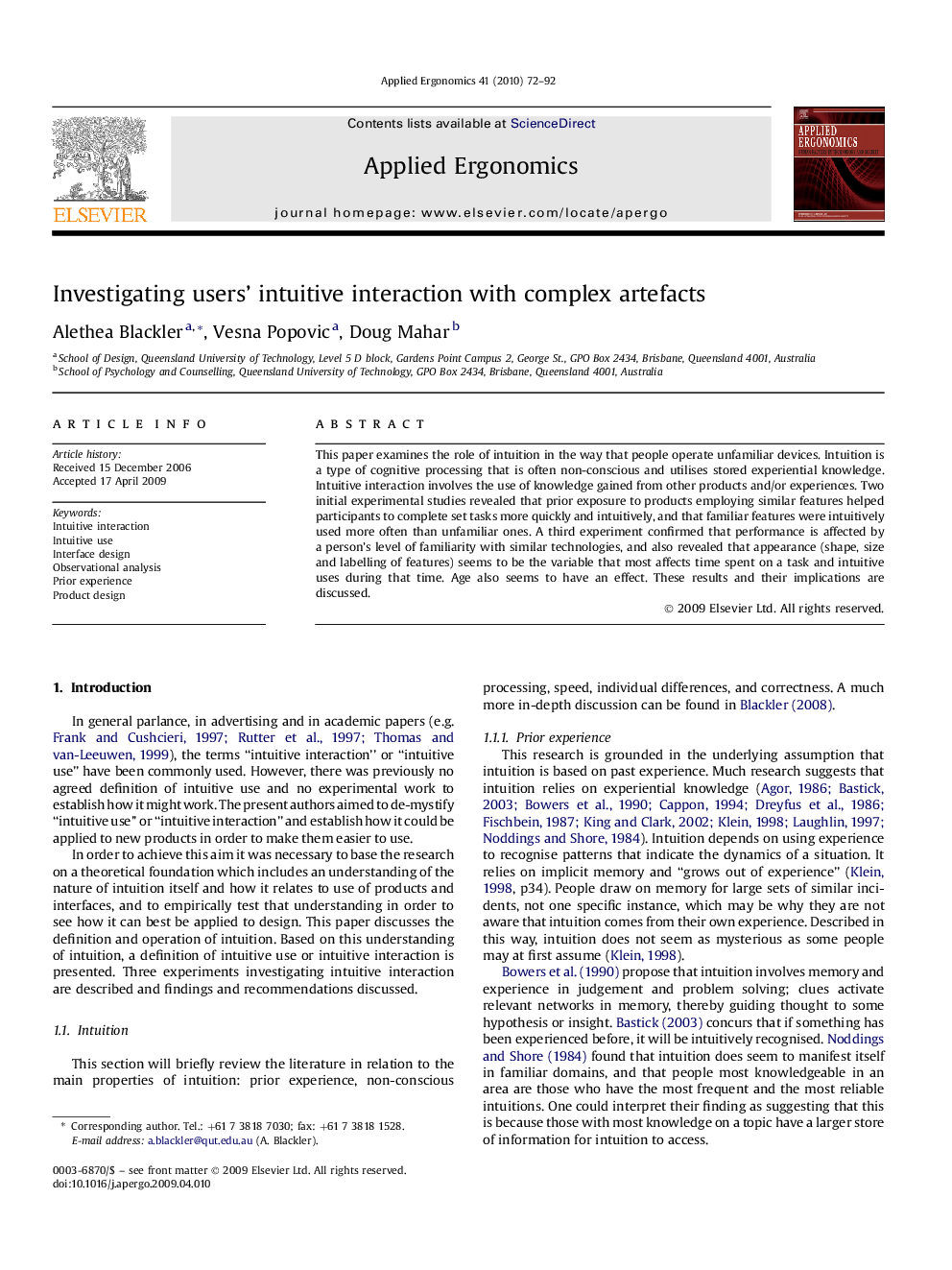| Article ID | Journal | Published Year | Pages | File Type |
|---|---|---|---|---|
| 548635 | Applied Ergonomics | 2010 | 21 Pages |
This paper examines the role of intuition in the way that people operate unfamiliar devices. Intuition is a type of cognitive processing that is often non-conscious and utilises stored experiential knowledge. Intuitive interaction involves the use of knowledge gained from other products and/or experiences. Two initial experimental studies revealed that prior exposure to products employing similar features helped participants to complete set tasks more quickly and intuitively, and that familiar features were intuitively used more often than unfamiliar ones. A third experiment confirmed that performance is affected by a person's level of familiarity with similar technologies, and also revealed that appearance (shape, size and labelling of features) seems to be the variable that most affects time spent on a task and intuitive uses during that time. Age also seems to have an effect. These results and their implications are discussed.
